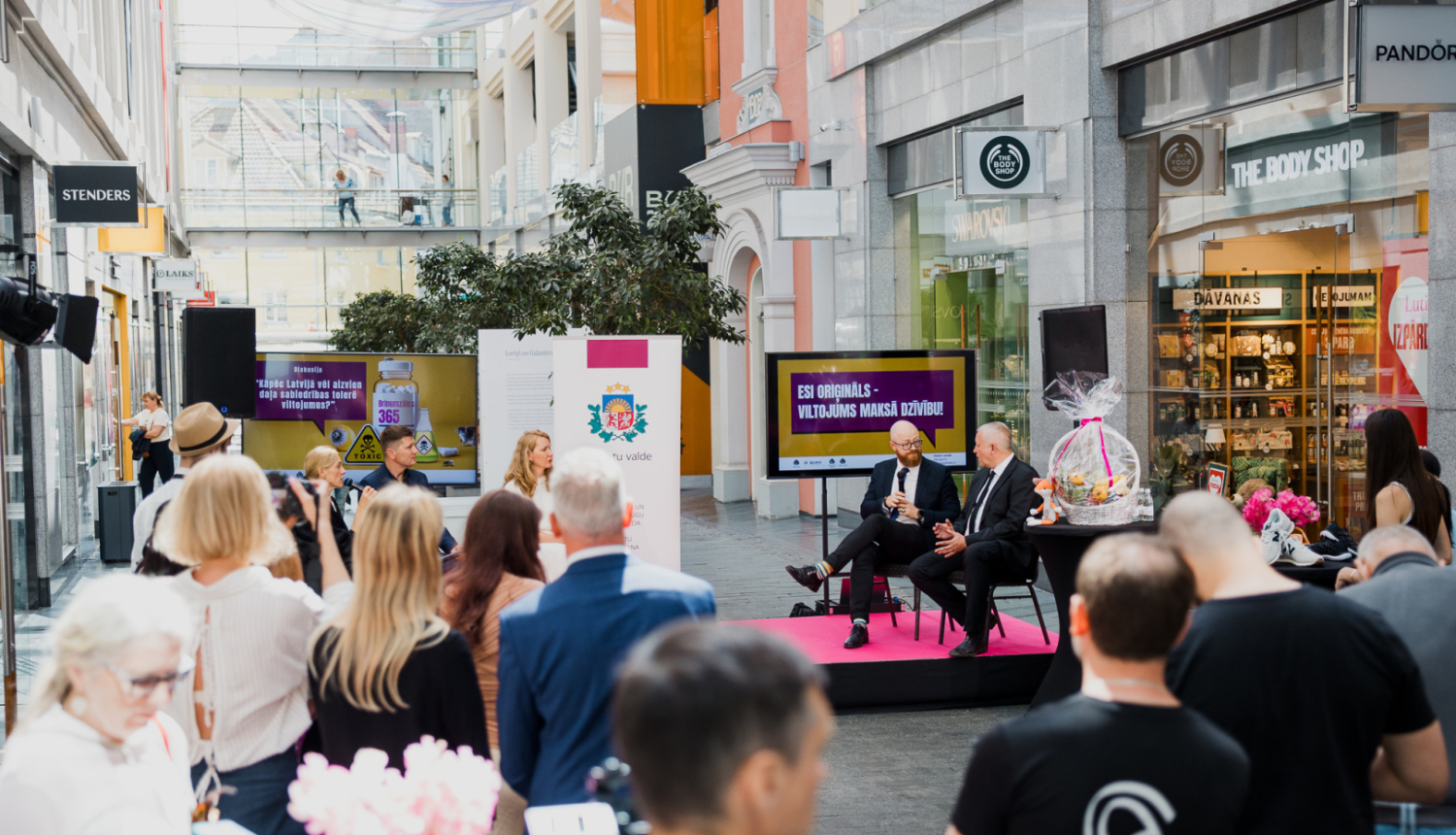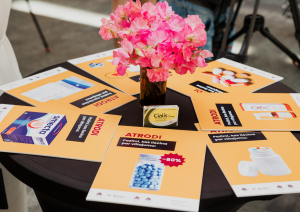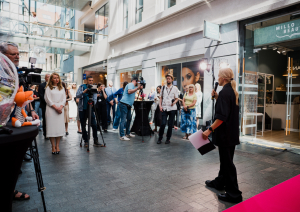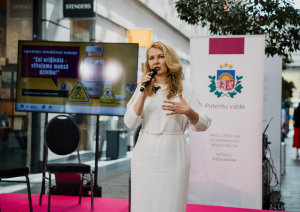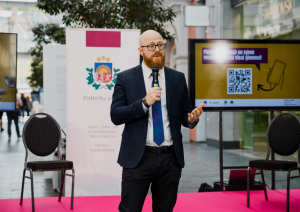From Monday, June 16, the Latvian Patent Office (LPO) is launching a public awareness campaign “Be original – counterfeiting costs lives!” The active phase of the campaign will last until the end of July, focusing on the protection of intellectual property (IP) rights and this time highlighting the negative impact of counterfeit medicines and dietary supplements on human health and safety.
In recent years, cases have been increasingly detected in the European Union (EU) where citizens purchase counterfeit pharmaceutical products, often without realizing the origin or composition of these goods. Latvian citizens are also not protected from buying counterfeit medicines and dietary supplements, taking into account the increasingly widening possibilities of e-commerce. Such products may be ineffective, toxic or contain untested and uncertified substances, causing direct harm to health.
The campaign aims to raise awareness of these risks and emphasize the responsibility of each citizen for their own and others’ safety. Minister for Justice Inese Lībiņa-Egnere emphasizes: “The IP protection is not just an economic issue, it is also closely related to public safety, health, the rule of law and even life. Last year, counterfeit medicines worth 64 million euros were seized in Europe, and more than 50 criminal groups were disrupted. Organized crime networks also operate in Latvia – they are present in our social networks, logistics systems, even in our advertisements. The state and society have a shared responsibility – to inform, monitor and choose the original. Every conscious decision against counterfeiting is a step towards a safer, healthier society.”
Population habits and normalization of counterfeiting
According to a survey conducted by the Patent Office in 2024, 41% of Latvian residents would consider purchasing a counterfeit, and more than half (54%) of residents aged 18 to 29 would purchase brand counterfeits.
These figures indicate a serious problem – for a part of society, counterfeits have become an acceptable alternative to legal products. Even greater concern is about the fact that counterfeit products purchased by local residents may include counterfeit medicines, dietary supplements, and medical devices. This trend is not unique – similar problems with the demand for and perception of counterfeits are also observed in other parts of Europe.
Director of the Latvian Patent Office Agris Batalauskis points out that it is important to address not only young people, who are particularly exposed to marketing manipulations by distributors of counterfeits on social networks, but also the wider public: “The use of counterfeit medicines and dietary supplements threatens any person’s health, therefore the task of the campaign is not only to warn about the dangerous consequences of counterfeits, but also to educate about how to protect oneself from potential threats. I hope that this campaign will improve the knowledge and daily habits of the residents, promoting their ability to recognize counterfeits and strengthening the trust in authentic manufacturers and official distributors. Our data on residents’ attitude towards counterfeits shows a dangerous trend, because 41% of residents accept the possibility of buying counterfeits that could also be medicines or dietary supplements.”
Counterfeiting networks and organized crime
Studies carried out by the European Union Intellectual Property Office (EUIPO) and the Organisation for Economic Co-operation and Development (OECD) show that the demand for personal protective equipment, tests and medicines increased significantly during the COVID-19 pandemic. This situation was immediately exploited by organised crime groups, which produced and actively distributed illegal goods using e-commerce platforms, postal services, and social media. Such dynamics significantly overloaded the work of supervisory and customs authorities.
The OECD analysis reveals that the global trade in counterfeit goods reached approximately €394 billion, or 2.3% of total global imports, in 2021. In the EU, this share was even higher – 4.7% of total imports. The distribution of counterfeit goods is facilitated by the use of both online platforms and logistics companies, including postal services, which allow small shipments to avoid customs control. 79% of shipments seized in 2020-2021contained fewer than 10 items. Particularly dangerous are cases where counterfeit goods are manufactured or assembled close to target markets, using so-called “localization” strategies that eliminate additional mandatory checks and controls, making surveillance more difficult and requiring new approaches to international cooperation and control.
In 2023, Europol’s operation SHIELD IV seized €64 million worth of counterfeit medicines across Europe, arrested more than 1,200 individuals and disrupted more than 50 criminal groups, dismantled underground labs and shut down dozens of websites.
Director of the National Customs Board Raimonds Zukuls admits: “At the EU’s external borders, the most important task in the field of customs control is currently related to preventing violations and circumvention of sanctions. At the same time, we continue the fight against smuggling and other violations. In our work, we focus on the cross-border control of shipments and cargoes associated with the highest risks. Reducing the spread of counterfeit goods is an important priority, because these products pose serious risks to both human health and safety, as well as to fair business practices. However, the customs cannot act alone – not only cooperation between institutions, but also citizens’ awareness of the risks and threats posed by the choice to purchase and use counterfeit goods plays a significant role.”
Counterfeit medicines – not just a low-quality risk
Counterfeit medicines are often not only ineffective but also dangerous. They can cause unexpected side effects, aggravate existing health problems or be incompatible with other medicines and their active substances. The European Medicines Agency stresses the need for consumers to verify the origin of medicines and to use only registered online pharmacies marked with a logo approved in the EU and a national flag.
Head of the Pharmacy Department of the Health Inspectorate Rihards Burmistris, reminds: “Counterfeit medicines are not just ineffective – they can be dangerous. It would be more accurate to say that counterfeit medicines are at best ineffective! At worst, they are harmful and have unpredictable effects and consequences. That is why it is crucial to purchase medicines only from legal pharmacies and legal online pharmacies. In the EU, only licensed online pharmacies are allowed to sell medicines online, and mostly only non-prescription ones. In Latvia, it is the State Agency of Medicines that licenses these pharmacies.”
How to protect oneself and others
To protect themselves, citizens must be vigilant and responsible. Medications should always be purchased only from registered pharmacies, including buying online only from officially licensed platforms, the list of which is published by the State Agency of Medicines. Before using medicines, it is important to check their packaging, looking for safety features, such as a seal, expiration date, and manufacturer's name.
Residents are urged to beware of overly tempting offers on the Internet, especially on social media, that promise miracle cures "without a prescription" or "100% natural" preparations at suspiciously low prices. It is always important to consult a healthcare professional before using any new medication or dietary supplement.
Residents are urged to report any suspicious products or sales locations to law enforcement authorities.



